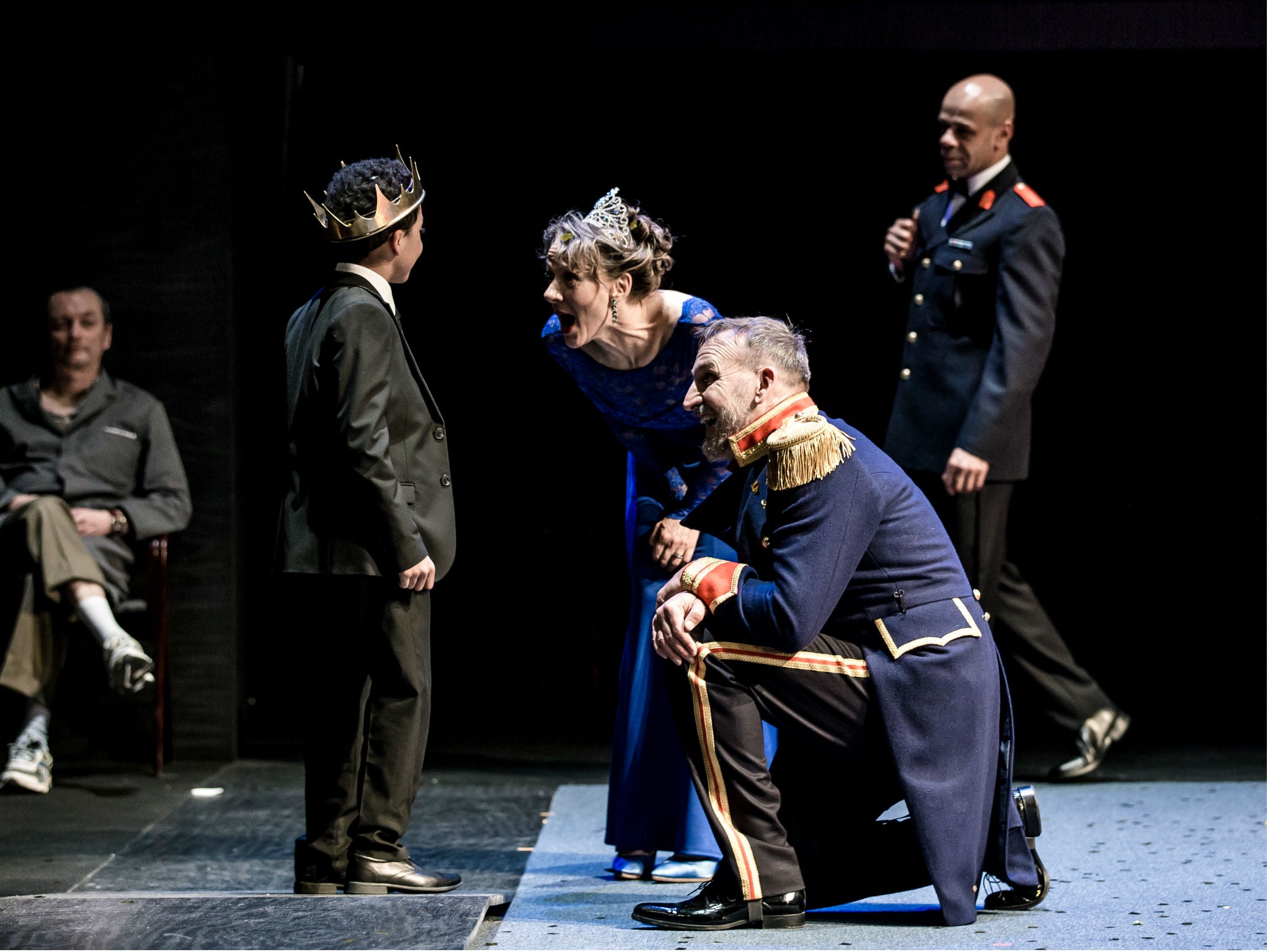Macbeth, Royal Shakespeare Theatre, Stratford-upon-Avon, review: Powerful, but new ideas are hit-and-miss
The death cries of Macduff's slaughtered children are accidentally relayed to Lady Macbeth's mobile phone in this modern-dress production of Macbeth' starring Christopher Eccleston and Niamh Cusack

Your support helps us to tell the story
From reproductive rights to climate change to Big Tech, The Independent is on the ground when the story is developing. Whether it's investigating the financials of Elon Musk's pro-Trump PAC or producing our latest documentary, 'The A Word', which shines a light on the American women fighting for reproductive rights, we know how important it is to parse out the facts from the messaging.
At such a critical moment in US history, we need reporters on the ground. Your donation allows us to keep sending journalists to speak to both sides of the story.
The Independent is trusted by Americans across the entire political spectrum. And unlike many other quality news outlets, we choose not to lock Americans out of our reporting and analysis with paywalls. We believe quality journalism should be available to everyone, paid for by those who can afford it.
Your support makes all the difference.Lost children – those that have died; those that will never be born – haunt Macbeth. So it’s a pointedly disturbing touch in her creepy, intelligent modern-dress production of this tragedy that director Polly Findlay has cast three young girls as the trio of witches. They dart about in hooded crimson onesies, each cradling a doll, their prognostications sounding an eerie sing-song note of innocence knocked, snaggingly, out of kilter.
Christopher Eccleston, here making his debut for the Royal Shakespeare Company, impressively conveys the horrible clash between the bluff, no-nonsense, northern-accented soldier and the inner man who is psychologically tormented by the implication of his deeds. He and the excellent Niamh Cusack give you a strong sense of the damaged hinterland of their marriage – in which being King and Queen is the consolation prize for the failure to have a family.
Stalking around in sequinned sheaths and hobbling heels, Cusack signals a perturbing rapture of ambition and a nerve-jangling impatience with her cowering consort. The pain and strain of this double life come through alarmingly and the emotional deterioration of Lady Macbeth is here complicated by some canny touches. The death cries of Macduff’s slaughtered children are accidentally relayed to her mobile phone – unhinging her to a drastic degree.
Sometimes Findlay’s ideas are too overt or obvious for my taste. There’s a digital clock running implacably backwards from the moment of Duncan’s murder to the death of Macbeth. With the crown suspended over Malcolm at the end, this chronometer is reset and the witches appear again, with the implication that Banquo’s heirs will start afresh the countdown to tragedy.
Equally, there are moments of unadorned emotional power – I don’t think I have ever seen Macduff’s dazed reaction, “All my pretty ones? Did you say all?” – to what has happened to his family communicated with the understated devastation achieved here by Edward Bennett.
Eccleston delivers a fine study of a man struggling to disguise a terminal exhaustion of spirit with a display of match-fit bravado. This RSC version strikes me as notable for its powerful take on the Macbeth marriage and for the pungency of its hit-and-miss ideas.
Until 18 September (rsc.org.uk); Broadcast live in cinemas 11 April
Join our commenting forum
Join thought-provoking conversations, follow other Independent readers and see their replies
Comments